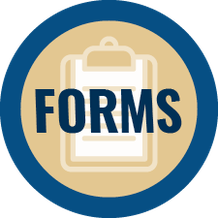Diagnostics / Outpatient Test
Abdominal Ultrasound for Abdominal Aortic Aneurysm (AAA)
▸ An ultrasound of the abdominal aorta is a
non-invasive test that uses high-frequency sound waves to image the "aorta."
ABI (Ankle-Brachial Index)
▸ Blood pressure can be measured at various
points in the legs to determine the level and extent of peripheral arterial disease. These segmental limb pressures can be measured using an inflatable blood-pressure cuff or by performing
ultrasonography on different segments of the leg.
Arterial Ultrasound
▸ A noninvasive method used to examine the
blood circulation in the arms and legs.
Cardiac Calcium Scoring
▸ A calcium score is a measure of how much calcified plaque is present in the arteries of an individual. Today's
research shows a direct correlation between the amount of calcium in the arteries and the likelihood of a future cardiac event such as a heart attack or stroke.
Cardiac Computed Tomography Angiogram (CTA)
▸ A heart-imaging test that helps your doctor
determine whether fatty deposits or calcium deposits have built up in your coronary arteries, the arteries that supply blood flow to the heart.
Cardiac Positron Emission Tomography (PET)
▸ A PET scan of the heart is a noninvasive
nuclear imaging test. It uses radioactive tracers (called radionuclides) to produce pictures of your heart.
Carotid Ultrasound
▸ This is a painless and harmless test that uses
high-frequency sound waves to create images of the insides of the two large carotid arteries in your neck. Carotid ultrasound shows whether plaque has narrowed your carotid arteries, blocking the
blood flow and creating a risk of stroke.
Echocardiogram
▸ A special imaging machine with a microphone-like attachment creates a videotaped image of
heart structures that shows the heart's four chambers, valves and movements.
IAC accredited facility.
External Cardiac Ambulatory Telemetry (ECAT) Monitor
▸ This monitor records ECG data and sends data to the Communicator, which sends data to the
Monitoring Center.
Electrocardiogram (ECG/EKG)
▸ A special recording machine is attached to
legs, arms and chest via 10 electrodes and takes a snapshot of the electric signals creating heart rhythms.
Holter Monitor
▸ To detect irregular heart rhythms, patients
wear a Walkman-size recording box attached to their chest by five adhesive electrode patches for 24 to 48 hours.
Stress Myoview
(Nuclear Stress Test)
▸ A stress myoview shows how well blood flows
through your heart and arteries while you are resting and during physical exertion. A small amount of a radioactive substance called thallium is injected in your body to show how well your heart
is pumping the blood, to see any heart damage your heart may have, or if you have any blocked arteries.
Stress Test
▸ A stress test shows how your heart works during
physical activity. Because exercise makes your heart pump harder and faster, a stress test can reveal problems with blood flow within your heart.
Venous Ultrasound
▸ A venous ultrasound is a diagnostic test used
to check the circulation in the large veins in the legs (or sometimes the arms). This exam shows any blockage in the veins by a blood clot or “thrombus” formation.





